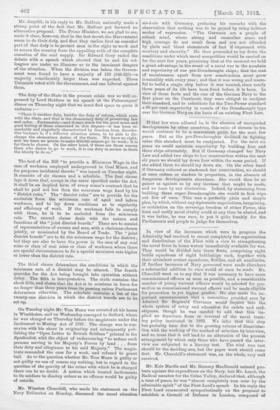If that law were adhered to, in the absence of
unexpected developments by other countries, this ratio of sixteen to ten would continue to be a convenient guide for the next few years. But as the pre-Dreadnoughts declined in fighting value this standard must be readjusted. For the next six years we could maintain superiority by building four and three ships alternately. But if Germany changed her Navy Law and added two ships to her construction within the next six years we should lay down four within the same period. If she added three we should lay down six. On the other hand if Germany reduced or slackened her construction, we should at once reduce or slacken in proportion, in the absence of dangerous developments elsewhere. She would thus be no gainer as against us by any increase that might be made, and no loser by any diminution. Indeed, by abstaining from building three super-Dreadnoughts she would in fact wipe out five of ours. This was a perfectly plain and simple plan, by which, without any diplomatic negotiations, bargaining, or restriction on the sovereign freedom of either Power, this keen and costly naval rivalry could at any time be abated, and it was better, he was sure, to put it quite frankly for the Parliaments and people to judge for themselves.






































 Previous page
Previous page